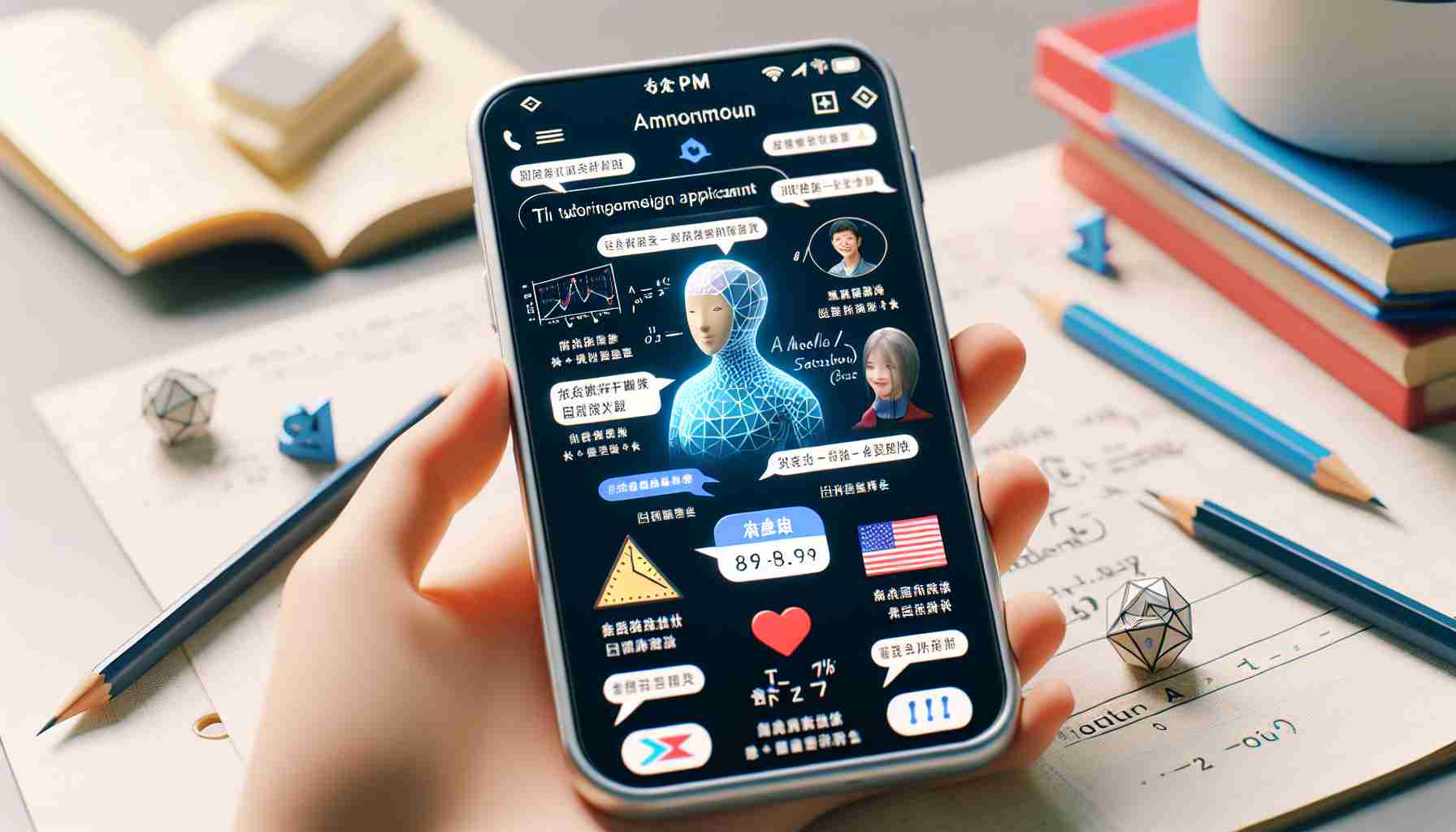American students are increasingly turning to a new Chinese AI-based tutoring app, Question AI, which has been downloaded 6 million times since its 2023 debut in the United States. This app is believed to be a product of developers behind Zuoyebang, a highly utilized homework helper app in China that has raised around 3 billion USD in a decade, as reported by TechCrunch.
Another notable competitor in this emerging market is Gauth, an application developed by ByteDance, the company owning TikTok. Since its introduction in 2019, Gauth has surpassed 12 million installations. These AI tutoring applications are drawing users with their cost-effectiveness; the cost of a year’s subscription to an AI tutoring app can equate to just one month of private human tutoring, according to TechCrunch.
The presence of these Chinese homework-solving apps in the U.S. market partly stems from China’s 2021 directive banning private tutoring. In a strategic pivot, Chinese firms are now focusing on international expansion, especially in the U.S., utilizing Singapore-based entities to provide AI tutoring services like Question AI and Gauth.
Strikingly, a quarter of the top 20 educational apps on the U.S. App Store employs AI to aid with homework completion. However, the efficacy and implications of AI in education continue to be debated. Some U.S. school districts have implemented bans and measures to prevent student access to AI platforms such as ChatGPT during school hours.
In the UK, surveys show that over half of the university students have embraced AI tools for their studies. Similarly, a Tyton Partners report indicates that nearly 50% of college students in the U.S. have utilized AI applications like ChatGPT, Google Gemini (previously known as Bard), Microsoft Bing Chat, and Meta Llama 2 for educational purposes.
Key Questions:
1. What are the benefits of using AI tutoring apps like Question AI and Gauth?
– AI tutoring apps can deliver personalized learning experiences at a lower cost than private tutoring. They are available 24/7, have the ability to process and analyze vast amounts of data to tailor content to individual student needs, and can help with a wide range of subjects.
2. What are some potential drawbacks of AI tutoring apps?
– They may not be able to replicate the nuanced feedback and emotional support a human tutor can provide. Depending on their underlying algorithms, these apps might also perpetuate biases or inaccuracies. Additionally, there are concerns about data privacy and security.
3. What challenges do AI tutoring apps from China face in the U.S. market?
– These apps may confront skepticism over data privacy, potential cultural differences in educational approaches, and the competitive landscape of the U.S. edtech market. They also face regulatory scrutiny and must navigate the U.S. educational standards and expectations.
4. What controversies are associated with the proliferation of AI in education?
– There are concerns about academic integrity, with students potentially using AI to complete assignments. There’s also debate about the impact of AI on learning, cognitive development, and whether it undermines the development of critical thinking skills.
Key Challenges and Controversies:
– Data Privacy: Chinese apps often face scrutiny regarding how they handle user data. U.S. users may be concerned about the privacy of their or their children’s educational data.
– Academic Integrity: With easy access to accurate and fast AI help, students might rely heavily on these apps, potentially harming their learning process and fostering a reliance on technology for academic performance.
– KACLU’s Position on Student Privacy Issues
– Regulatory Environment: China’s educational products entering the U.S. market have to comply with U.S. laws and regulations such as COPPA (Children’s Online Privacy Protection Act) and FERPA (Family Educational Rights and Privacy Act).
Advantages:
– Cost-effectiveness: AI tutoring apps can be significantly cheaper than hiring personal tutors.
– Accessibility: Students can access these applications anytime and anywhere, making it easy for them to get help outside of school hours.
– Personalized Learning: AI algorithms can adapt to the learning pace and style of each student, providing customized assistance.
Disadvantages:
– Lack of Human Interaction: AI cannot fully replicate the nuanced interaction and motivation a human tutor can provide.
– Dependence on Technology: There is a risk of students becoming overly dependent on technology for learning and problem-solving.
– Potential for Misuse: Students might use AI to complete homework without proper understanding or effort, negatively impacting their learning.
To explore more about the broader impact and development of AI within educational contexts, consider visiting the following authoritative sources:
– U.S. Department of Education
– International Society for Technology in Education
The source of the article is from the blog be3.sk

